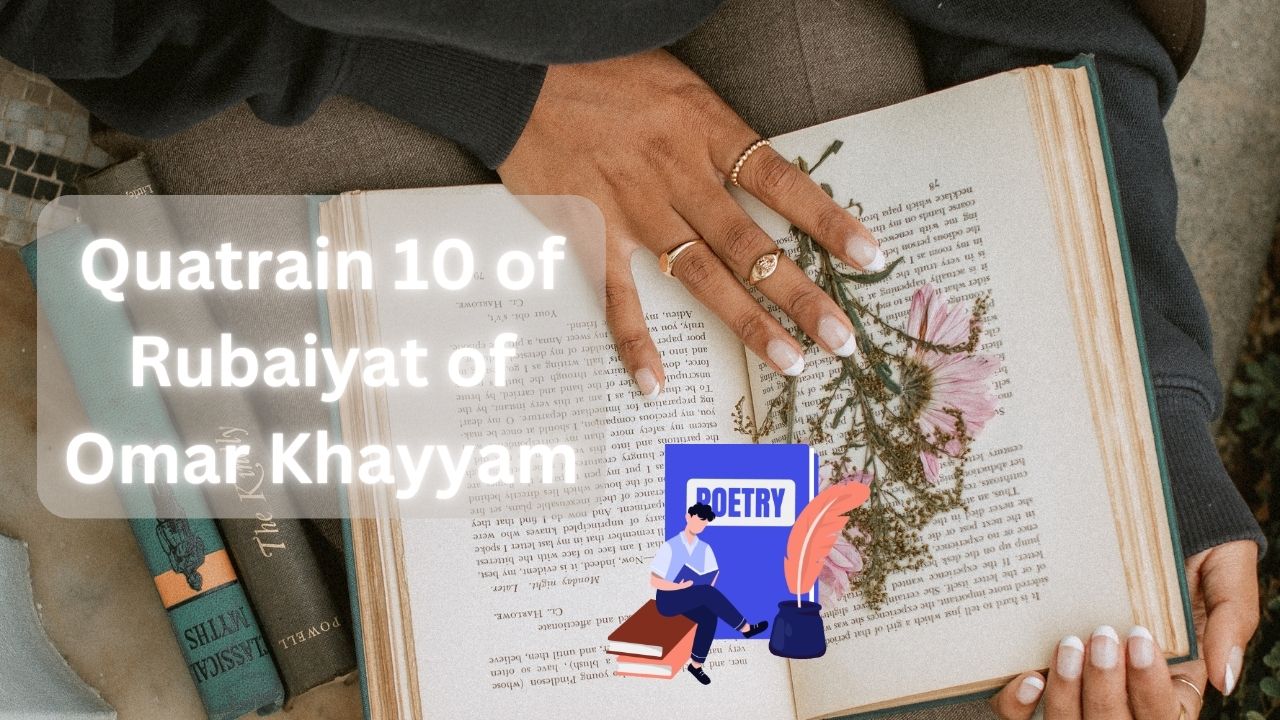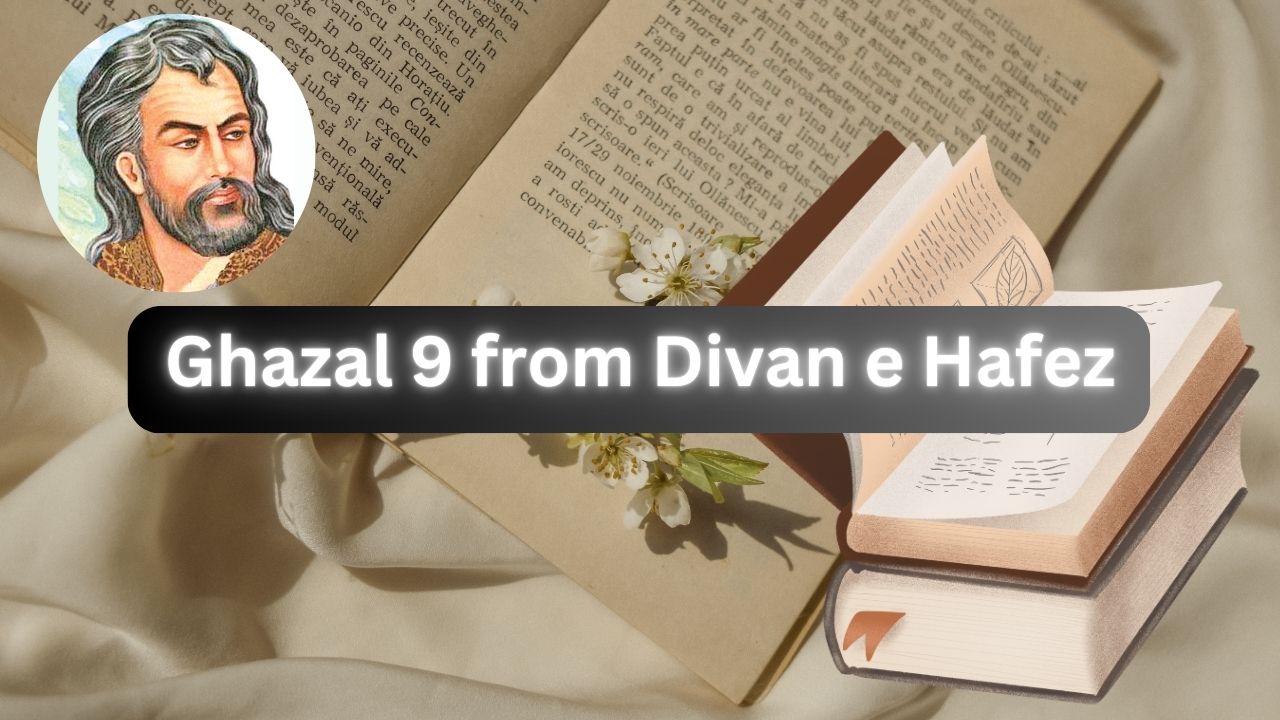Khājeh Shams-od-Dīn Moḥammad Ḥāfeẓ-e Shīrāzī known by his pen name Hafez 'the memorizer; was a Persian lyric poet whose collected works are regarded by many Iranians as one of the highest pinnacles of Persian literature. His works are often found in the homes of Persian speakers, who learn his poems by heart and use them as everyday proverbs and sayings. His life and poems have become the subjects of much analysis, commentary, and interpretation, influencing post-14th century Persian writing more than any other Persian author.
Hafez is best known for his Divān, a collection of his surviving poems probably compiled after his death. His works can be described as "antinomian" and with the medieval use of the term "theosophical"; the term "theosophy" in the 13th and 14th centuries was used to indicate mystical work by "authors only inspired by the holy books" (as distinguished from theology). Hafez primarily wrote in the literary genre of lyric poetry or ghazals, that is the ideal style for expressing the ecstasy of divine inspiration in the mystical form of love poems. He was a Sufi.
Themes of his ghazals include the beloved, faith and exposing hypocrisy. In his ghazals he deals with love, wine and taverns, all presenting ecstasy and freedom from restraint, whether in actual worldly release or in the voice of the lover speaking of divine love. His influence on Persian speakers appears in divination by his poems, fāl-e hāfez, his poems in Persian traditional music, visual art and Persian calligraphy. His tomb is located in his birthplace of Shiraz. Adaptations, imitations and translations of his poems exist in all major languages.
Before I start I have to mention that in Persian language we don’t have gender specific pronouns. So in translation I use the he pronoun and it means both feminine and masculine pronoun. I wish you understand it and also urge you to purge gender specific features from your language, step by step, using Persian language as example.
In this epizod of Divan e Hafez we suppose to discuss the number 7 ghazal. As Hazrat e Hafez says:
صوفی بیا که آینه صافیست جام را
تا بنگری صفای می لعلفام را
O Sufi, come, the mirror of the cup is clear, so that you can see the purity of the red wine or May in Persian language. Sufi, Safi, and Safa have arrays of puns and derivations. "Ra" in the first stanza is a prepositional voice. The cup is likened to a mirror in clarity and transparency. Ghazal begins by calling Sufi to come and see something in the Jam e May or cup of red wine. As if he wants to show something to someone in continuation of a previous conversation. La’al fam means red colored. La’al is red ruby that its color is repeatedly used in Persian poetry for red wine or the lips of the lover.
راز درون پرده ز رندان مست پرس
کاین حال نیست زاهد عالیمقام را
In the continuation of his address to Sufi, after showing the purity of Lalfam's May or ruby red wine, he continues that if you are looking for the secret behind the veil, ask Rendan Mast or drunken Rend. Rend is someone who doesn’t care about his situation and is always happily living. The high-ranking ascetic does not have this state and this quality; And he doesn't have this love either; who can know the secret behind the veil or if he knows, he can answer your question. The drunken Rend and the high-ranking ascetic have come together in confrontation. And a Sufi is described as someone who seeks to know the secret behind the veil, from a high-ranking ascetic. And the poet considered the purity of Lalfam's May and the drunken Rendan as more knowledgeable and kind and advised Sufi that if he wants the secret behind the curtain, he should ask the drunken Rendan (it could be the poet himself).
Note that in Persian Erfan it is believed that there is another parallel world to this physical world that our physical eye cannot see it, and humans can only see it through their hearth or soul. This hearth that in ghazals in Persian is called Del or Ghalb is actually the essence of human. What is he truly is without considering his physical body.
عَنقا شکار کَس نشود دام بازچین
کآنجا همیشه باد به دست است، دام را
No one can hunt the Angha that is a legendary bird. You also pluck the trap that you set! that there (where they are spread with the intention of hunting animals) there is nothing but the wind in the hand of the animals. Wind in the hand is an allusion to returning empty-handed and not getting anything. Angha will not be hunted by anyone. And stop wanting to set traps and catch monkeys! Because there and in that work, your trap will always catch nothing but the wind!
Maybe Hafez intends here that by logic and people who expect themselves wise the secrets of the divine world can not be grasped.
در بزم دور، یکدو قدح درکش و برو
یعنی طمع مدار وصال دوام را
In a party where everyone takes turns tasting a pint of wine, pour a glass or two and go. This means that you should not hope that the connection will last forever. You can only have a drink or two and go, and it is pointless to expect a constant connection. Bazm e dowr can be a metaphor for life. Like a party where everyone stays for a while and then leaves.
ای دل شباب رفت و نچیدی گلی ز عیش
پیرانهسر مکن هنری ننگ و نام را
Oh my heart, my Del! The days of youth passed and in those days you did not pick a flower from the garden of luxury. Now that you are old, don't make art because of your reputation! I see the making art, as a humorous and sarcastic expression! Don't be artistic, don't do extraordinary work! Do not do anything dangerous! In other words, when you were young and for young people, luxury and picking flowers is considered permissible (in other words, it can be justified and there is less dishonor on it), you did not do this! Now that you are old, don't create a masterpiece in your old age, for the sake of preserving your reputation!
در عیش نقد کوش که چون آبخور نماند
آدمْ بهشتْ، روضهٔ دارُالسَلام را
Try to have the luxury of criticism. This is because Adam also left the shrine of Dar al-Salaam and the garden in which he had comfort and health, because there was no water trough, Nasib, the water spring of Kausar or the spring of immortality left in it. In other words, heaven was not eternal. So try to benefit from every happiness that is available to you. Paradise is used as a verb here; From "hashtan" meaning "abandoning" or "putting down", which has complete puns with the word "heaven" meaning "campus", "paradise" or "mino".
ما را بر آستان تو بس حق خدمت است
ای خواجه بازبین به تَرَحُّم غلام را
I have served you a lot and for this reason, I have the right to serve you. O Khajeh meaning someone great! In return for this service, for your kindness, compassion, and servitude, consider me to be at your service and by your side.
حافظ مرید جام می است ای صبا برو
وز بنده بندگی برسان شیخ جام را
Hafez wants and wants the May Cup. O Saba, go and express your devotion and servitude to the sheikh of the cup and the holder of the cup on my behalf and tell him that the keeper of the cup wants May. 2. If you are a disciple of Sheikh and Murad of your own, Hafiz is a disciple of the cup of May. O Saba! Go and convey my service and devotion to the sheikh. Every seeker in the tariqat is a disciple of a sheikh. And the poet declares that he is a disciple of Jam-e-May and his sheikh is also a sheikh of Jam-e.





